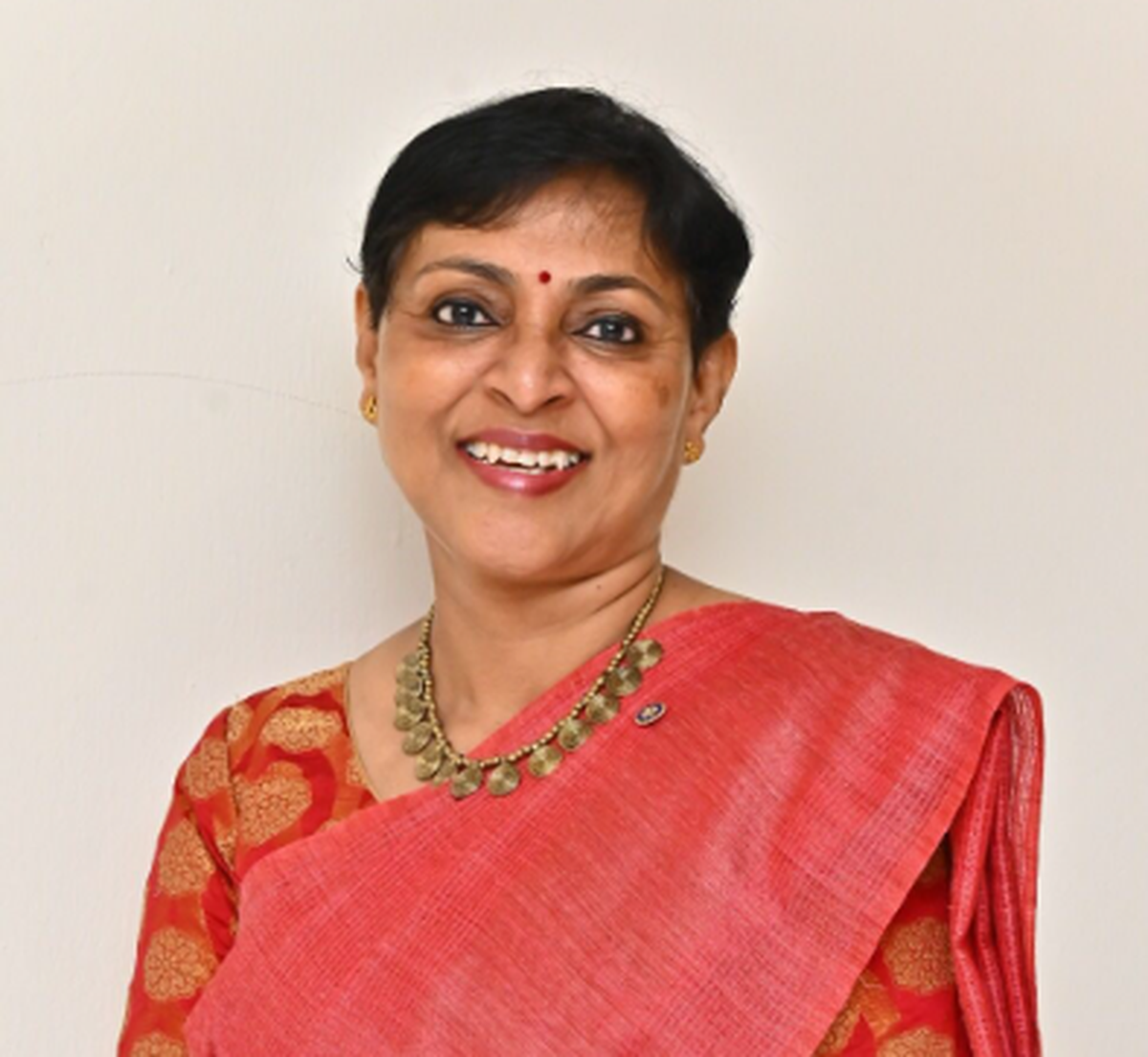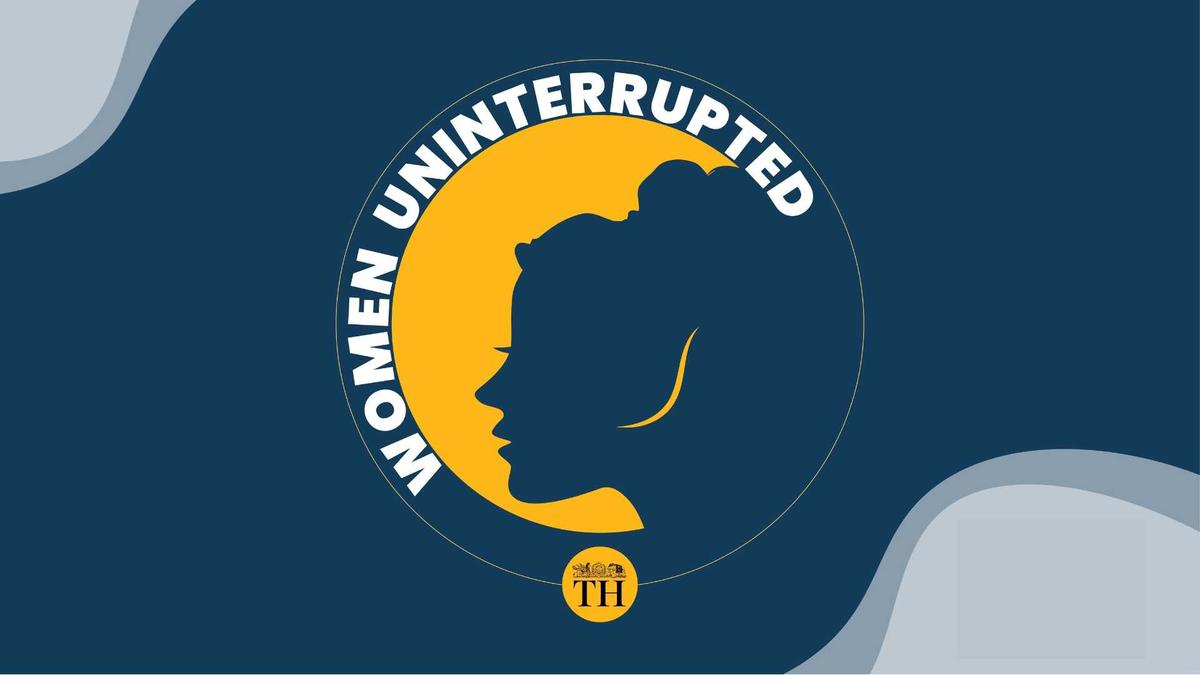On relationships between women caregivers and the elderly: we talk to a caregiver who is also a provider of products and services to senior citizens.
Women Uninterrupted is a podcast by The Hindu. We bring you difficult, different and uninterrupted conversations about being a woman.
Host: Anna Thomas
Guest: K P Jayashree
Title music: Maya Dwaraka
Production: Anna Thomas with The Scribbling Pad
Prioritising caregiver mental health
Women Uninterrupted spoke to Tanvi Mallya, a geropsychologist and the founder of a service that provides mental health support services solely to older adults and their caregivers.
The importance of assessing the mental health of family caregivers, particularly women.
In India, where familial caregiving norms are deeply ingrained, women often bear the brunt of eldercare responsibilities, leading to heightened stress and mental health challenges. Assessing their mental well-being not only acknowledges their contributions but also facilitates tailored support and interventions, safeguarding their health and overall family dynamics. Neuropsychologically informed assessments delve into the cognitive and emotional impacts of caregiving on individuals as well as care recipients.
It is crucial to adopt a trauma-informed approach by recognising the potential stressors and traumas inherent in caregiving roles. Person-centred care, for both the older adults and their caregivers, places emphasis on understanding their unique needs and experiences, promoting a sense of autonomy and empowerment.
Tanvi Mallya
Collecting data on informal caregiving is paramount, especially as India transitions towards an ageing society.
From a geropsychological standpoint, understanding the impact of caregiving on both caregivers and elders is crucial for implementing effective interventions. Additionally, a neuropsychological perspective can shed light on the cognitive and emotional effects of caregiving stress. However, India currently lacks comprehensive data collection mechanisms for informal caregiving.
To address this gap, societal strategies should focus on implementing nationwide surveys to quantify caregiving prevalence, assess caregiver burden, and identify risk factors. Furthermore, establishing support networks and caregiver training programmes can mitigate stress and improve caregiver well-being.
Additionally, integrating geropsychological and neuropsychological assessments into routine healthcare, and ensuring provision of relevant support, can aid in early detection and intervention for caregiver distress and elder wellbeing.
The essential features of the perfect at-home care system.
In the Indian context, crafting the perfect at-home care system requires a multifaceted approach.
Integrate culturally sensitive practices that honour familial dynamics and are trauma-informed and person-centred.
Provide comprehensive support services tailored to the elderly’s psychological and neurological needs, utilising the expertise of geropsychologists and neuropsychologists. Practical assistance with daily activities, cognitive stimulation programmes, and emotional support are essential components. At our centre, we offer sessions for older adults that provide neurocognitive stimulation and work on their emotional well-being.
To ease the caregiving burden on women, the system should offer respite care options, community-based support groups, and flexible work arrangements for caregivers. At our practice, we have recently started offering free virtual support groups for family caregivers of older adults; we also offer caregiver counselling to caregivers of older adults.
Leveraging technology for remote monitoring and telehealth consultations can enhance accessibility and efficiency.
Empowering women to participate in paid employment requires accessible childcare services and workplace policies accommodating caregiving responsibilities.
Ultimately, a holistic approach addressing cultural, psychological, and socioeconomic factors is vital for an effective at-home care system in India. Prioritising caregiver mental health fosters resilience, reduces burnout, and ultimately enhances the quality of care provided to elders.
AUDIO TRANSCRIPT
Host: This is Anna Thomas, your host on Women Uninterrupted, a podcast on The Hindu website. And on this episode, I have with me Jayashree, who is both a provider of services for the elderly as well as a caregiver herself. Welcome, Jayashree, to Women Uninterrupted.
Jayashree: Hi, Anna.
Host: I’m here in Jayashree’s store. This is a home more than a store, I would say…
Jayashree: I like that word that you said: home. Basically, our idea was that: to make it more homely for the elders. It’s not like a typical store they walk in to. We were very clear that we would only take a house and make people comfortable once they come, and listen to them and then…that’s how we actually bond with our elders.
Jayashree, let’s talk about the origin story of your store. You started the store after you spent some time caregiving for your mother-in-law. Tell us about the challenges you faced.

K P Jayashree
Jayashree: When my mother-in-law came to live with us, it was like, she was a very fiercely independent woman. Very creative too. And all of a sudden, she lost her eyesight and you should give it to her: she’d taken it up so gracefully. Never complained; never. So, it was like, you felt all the more to make her more comfortable because she was that kind of a person. We were wondering how to make her more comfortable. She never liked to take any help from anybody. That’s how she was. So then when she lost her eyesight, every day, getting up from her bed and then going and using the bathroom: everything was a challenge for her. We had put up these railings right from her bed, so when she gets up, she holds onto the railing. So, she also knows that it is she who is moving and she is not totally dependent on us. And for us also, it is like, the whole burden is not on the person who is holding her.
We got a little more closer after she came, and it was like, every day giving her breakfast and sitting with her and talking. And she’ll talk about all her younger days and she’ll talk about her father and mother and how she went to school and college. Plus, she is a very ardent cricket fan. We got her a transistor…there are day and night matches that go on. She’ll listen to the commentary through the night and next day morning we’ll come and ask her what, how did the match go? And she would tell us the whole thing. Then she also loves old Hindi songs. So, we had given her the small…we filled up one USB full of old Hindi songs and she would just listen to it and that was her way of coming to terms with how she was. As a caregiver with my mother-in-law, I don’t think I felt so much pressure per se because she was a very, very accommodative person. In fact, I used to tell her don’t feel hesitant calling me in the night or something, because she always felt that if you disturb in the night people lose sleep, and all that stuff. And I used to tell her I sleep better if you wake me up, so no issues, you can call me anytime. She’s a person who would never complain or anything. That was an anxious thing. It would make me more think that OK, since she’s not asking, you got to be there all the time. She took her…whatever problem that she had, she accepted it gracefully…That gave me something to learn from her, to say how you can take age gracefully too.
Host: Would you say that there are more women doing informal caregiving in the Indian cultural setting…
Jayashree: Yeah, in the Indian cultural setting, it’s like, taken for default that the woman is the caregiver. Now it’s more challenging for the woman, because most of them are working and then there’s the work pressure plus caregiving at home. Work front and the home front gets little too difficult to handle…
Host: How can we help with that?
Jayashree: Anybody who is finding it hard should be able to ask for support from within the family or outside the family to make their life more comfortable, be it the elder or the caregiver. It’s the caregiver who needs a lot of support so that they can give good caregiving to the elder, because if they don’t get the support then it becomes very, very difficult. The relationship between the elder and the caregiver gets strained because of the stress that both of them are going through.
Host: Caregivinghas probably been a major reason behind women taking career breaks. So, when a woman takes on a caregiving role, what would she generally give up?
Jayashree: I would agree. 98 pc of the time, women give up their career to do some caregiving.
Host: Yeah, sometimes in their early…sometimes when they’re really young, this happens.
Jayashree: Some of them are driven by the love of the person. Some of them are driven by the fact that they have no other choice, but.
Host: Rolesreverse. The caregiver becomes a dependant – becomes dependent. The younger person becomes the caregiver. The main challenges in a relationship like that?
Jayashree: The current elder, they quite often do not want to take up that kind of help from people, be it their daughter or daughter-in-law. So, then what happens is, it becomes very difficult to make them understand that it’s OK. It’s OK to take help from whoever you actually took care (of). You can make them feel comfortable: all their life, they did take care of somebody, so it’s OK to be taken care of.
Host: You were giving me some interesting examples of how you convinced an elder to take help from you.
Jayashree: As a provider or as a caregiver, we’ve always felt that you just give them the choice: don’t push it on them or don’t thrust it on them and tell them: OK, this is available, it can make your life so comfortable and you try it once and, if you’re OK, fine, you can continue…make them understand. All of them will come your way to accept the change that they need to accept.
Host: Sometimes, you don’t have the time, like, you want your elder to use diapers, for instance. Sometimes, you just cannot afford that time, which can lead to frustration on the caregiver’s part. Do you think we can take professional help?
Jayashree: Yes, if you are not able to convince the elder, maybe you can get support from your family, somebody who is closer to the elder or, you can take help professionally. Make them understand how it will be easy for them and also for the caregiver. Sometimes, it’s just the way you put it across to them… make them understand it makes life easy for everybody around them. And not make them feel that it’s a burden.
Host: Let’s talk about guilt. This happens both on the caregiver’s part as well as on the person who is being taken care of – the elder. Do we talk about guilt? Expressions of guilt, expressions of embarrassment are frowned upon. Or perhaps we are conditioned not to talk about it.
Jayashree: Yeah, the elder feels guilty that they have actually burdened the caregiver, or the caregiver feels that…sometimes they lose it – their frustration – and then they’ve taken it out on them and they feel so guilty that maybe I should not have done it this way.
Don’t feel bad about expressing that you feel guilty. Talk to people. It can be your friends or it can be somebody in the close family whom you can talk to. Or if you feel that that’s not there, you can even take professional help to relax, because the caregiver needs some Me time to actually rejuvenate because it’s like a monotonous thing that is happening day in and day out, plus it also drains them emotionally and physically. That’s how the frustration builds in. it’s OK to actually go out, take somebody’s help, take care of your elder for some time: you can go out and actually take a breather. Continue doing your thing. If you don’t do that is when the frustration builds in, the guilt builds in, and then the relationship actually goes for a toss.
Host: From the living room to, say, the kitchen: Can you give a few small tips on how we can make a home elder-safe…Elder-friendly? Elder-safe?
Jayashree: Elder-safe. Yes. Elder-safe and elder-friendly. The first thing I would say – even the living room – I would say right from the entrance to your house, ensure that you don’t have too big steps to get up and go. So, if there is a step, make sure that there is a small ramp or a railing to hold. Very, very important thing is the flooring. Bathroom: that’s very, very important
Host: You were also talking about how we should start caregiving early.
Jayashree: Yeah, the important thing about caregiving is the caregiving need not start when only when the elder becomes inactive. We try and make their life comfortable at a much earlier stage, so we prevent to a lot extent how much they become dependent. We do something called a safety audit where we go to the elder’s house and actually audit their house for any kind of thing that will help prevent fall or any kind of security problem in the house, because you find most often the elder living alone. So, you also advise them on how to keep the house secure,
Host: Thank you, Jayashree, for being on this podcast where we were talking about caregiving and the challenges that caregivers face.
Jayashree: Thank you, Anna.
Host: Signing off on Women Uninterrupted, a podcast where we host difficult, different and uninterrupted conversation brought to you by The Hindu.

Deepak Sen is a tech enthusiast who covers the latest technological innovations, from AI to consumer gadgets. His articles provide readers with a glimpse into the ever-evolving world of technology.


